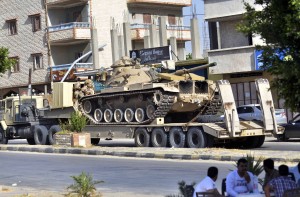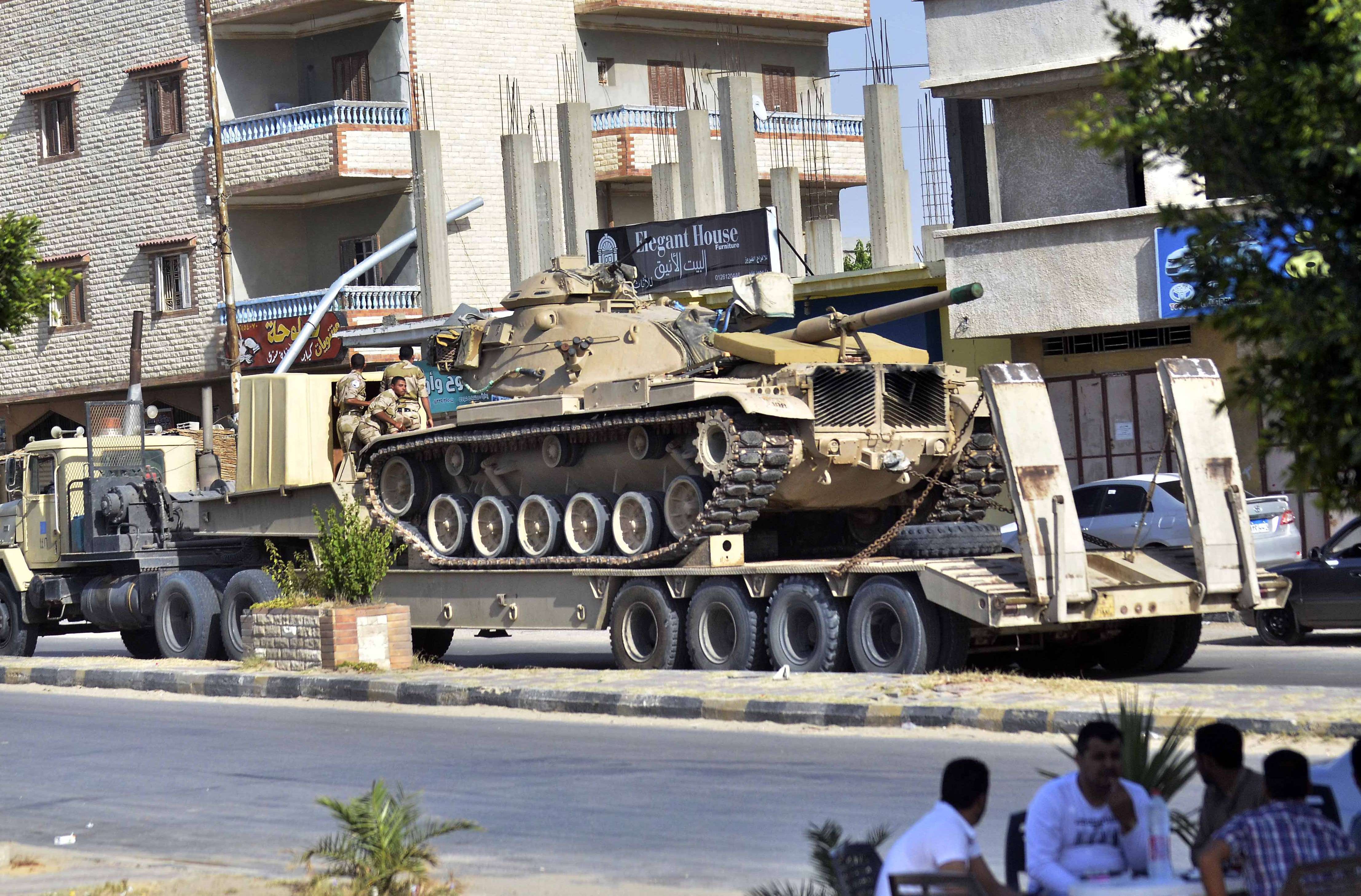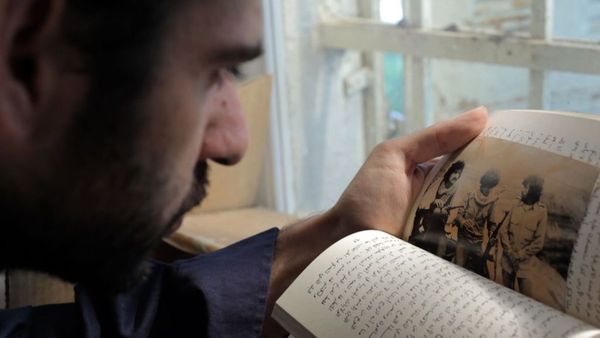
(AFP File Photo)
President Abdel Fattah Al-Sisi announced on Tuesday the reduction of the curfew in place in parts of North Sinai to eleven hours instead of 14, in order “to help people in Sinai earn a living”. The curfew in the affected areas will now be to be from 7pm to 6am.
The decision came during Al-Sisi’s meeting on Tuesday with Sinai tribal elders and leaders.
On Wednesday, eyewitnesses allegedly witnessed “terrorist elements” planting a bomb on the western entrance road to the town of Al-Arish, according to state-run MENA news agency. The device exploded but no deaths or injuries were reported.
Following the 24 October attack in Sinai on security personnel that left at least 30 dead in a combination of bombings and militant raids, the National Defence Council headed by Al-Sisi announced a three month state of emergency in specific areas in North Sinai.
Militant group “State of Sinai” claimed the attack through an online video showcasing the operation. The group formerly known as Ansar Beit Al-Maqdis changed its name after pledging allegiance to the Islamic State in Iraq and the Sham (ISIS).
The curfew was initially set from 5pm to 7am and violating the emergency law could result in imprisonment.
The emergency law is part of other security measures that include the complete closure of the Egypt-Gaza border, the relocation of residents living on the border in order to destroy smuggling tunnels leading between Sinai and Gaza, and the establishment of a 500-metre “secure zone” along the Gazan border of – later extended to a 1km-wide zone in November.
Three days following the attack, Al-Sisi announced a decree, to be applied for two years, which refers those who commit crimes against the state’s “vital” facilities to military prosecution. The facilities include “stations, power networks and towers, gas and oil fields, rail lines, road networks and bridges”.
” Attacks on these facilities will be equated to attacks against military sites,” according to a statement by the Ministry of Foreign Affairs in November.
The restive Sinai Peninsula has witnessed a sharp increase in bombings and clashes between militants and security forces since the ouster of former president Mohamed Morsi in July 2013.


